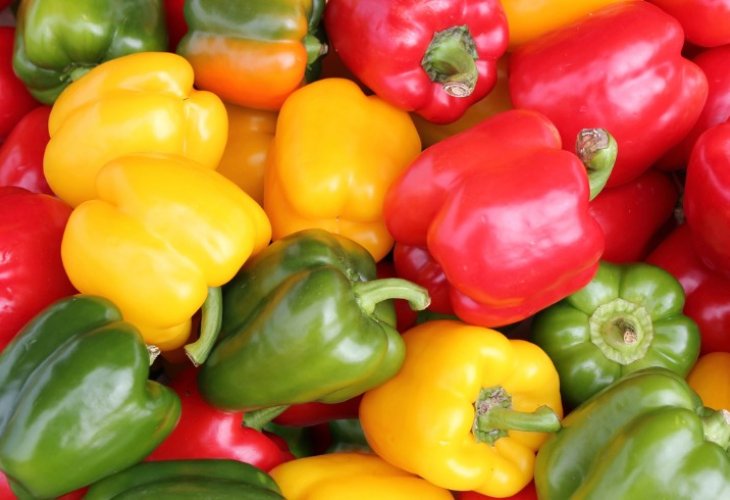10 Amazing Facts About Bell Peppers, the Vegetable That Prevents Cancer and Slows Aging
Bell pepper, a vegetable from the nightshade family, is packed with vitamins, minerals, and antioxidants. It is healthy, essential, and considered a part of the recommended Mediterranean diet.

1. The bell pepper belongs to the nightshade family, similar to eggplants, tomatoes, potatoes, and sweet potatoes. Nightshade vegetables are packed with vitamins, minerals, and antioxidants. They are healthy, essential, and are considered part of the recommended Mediterranean diet.
2. Bell pepper fruits are round or elongated in red, yellow, orange, purple, light green, or dark green colors. The bell pepper originates from South America and was later brought to Europe and the rest of the world. Initially, it was used as an ornamental plant and medicinal herb, and only later on it was used for consumption.
3. All bell peppers start as green peppers. They acquire their color—whether red, yellow, or orange—during ripening.
4. The red bell pepper, the most well-known, is considered the most nutritious source of vitamin C compared to other fruits and vegetables. A medium-sized red pepper contains over 200 mg of vitamin C, which is three times more than an orange.
5. The ripe fruit contains just over 90% water, about 5% carbohydrates, and numerous vitamins and minerals: vitamin A, vitamin B1, B2, B3, B5, B6, B9, vitamin C, vitaminE, vitamin K, calcium, iron, magnesium, zinc, potassium, omega 3, 6, and 9.
6. Bell peppers are low in calories (a 100g pepper has about 20 to 25 calories), rich in dietary fiber, and contribute to a feeling of fullness, making them effective and recommended for inclusion in weight loss processes.
7. Interestingly, there is no relation between bell pepper and black or white pepper.
8. Studies have shown that increased intake of vitamin C, found in high amounts in red bell peppers, reduces the risk of the eye disease cataract, the leading cause of blindness in adults.
9. Thanks to its antioxidants and high vitamin C content, it is recommended to eat bell pepper daily to prevent cancers of the mouth, throat, vocal cords, esophagus, stomach, breast, colon, and lung.
10. The bell pepper is an antioxidant containing red and orange carotenoids, which maintain overall health, prevent diseases, and slow the aging process.
Rabbi Zamir Cohen - 4 Rules for Maintaining Health:
Rabbi Zamir Cohen - What is Judaism's Attitude Toward Maintaining Health? And More Important Tips:

